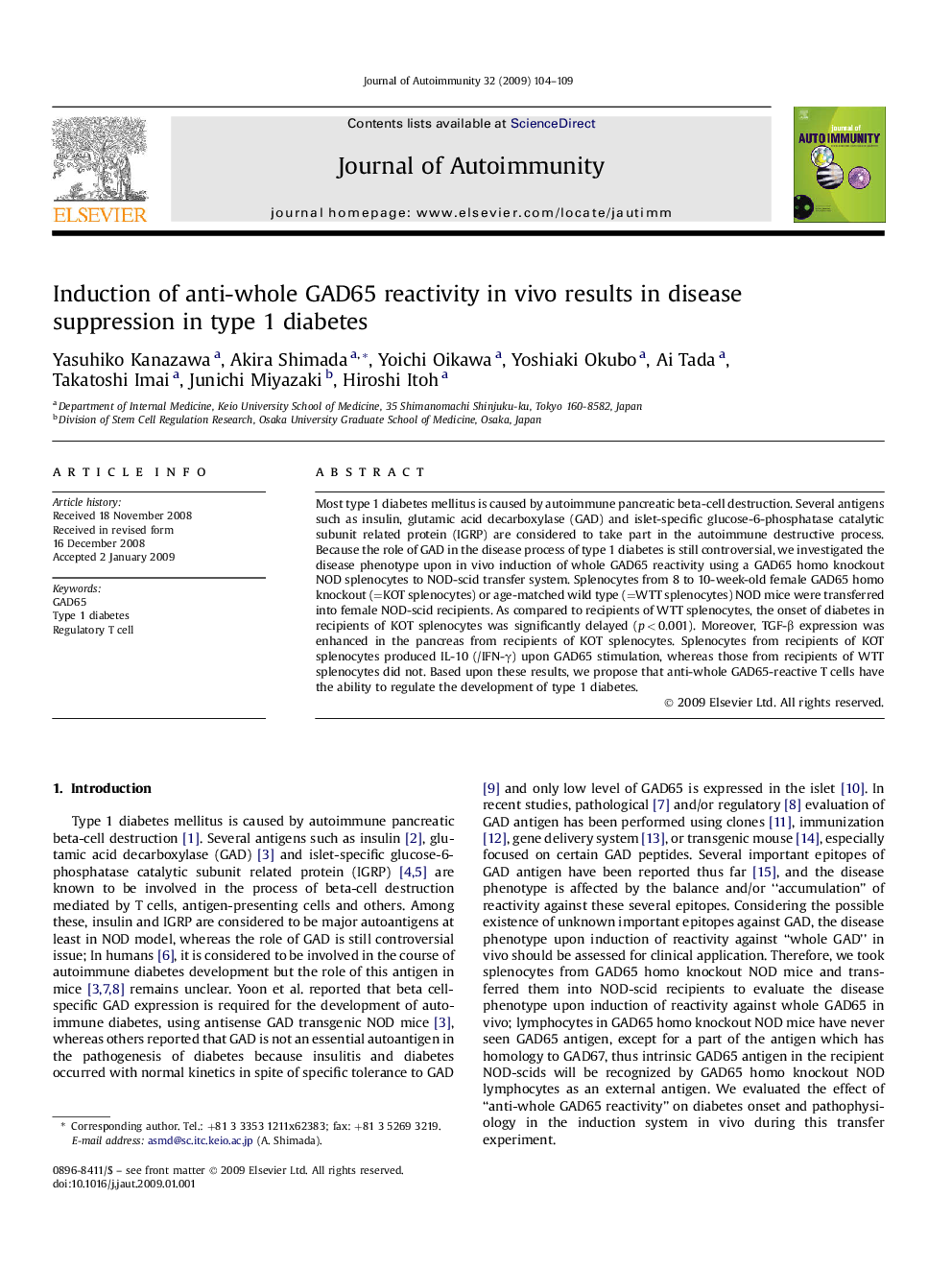| Article ID | Journal | Published Year | Pages | File Type |
|---|---|---|---|---|
| 3368167 | Journal of Autoimmunity | 2009 | 6 Pages |
Most type 1 diabetes mellitus is caused by autoimmune pancreatic beta-cell destruction. Several antigens such as insulin, glutamic acid decarboxylase (GAD) and islet-specific glucose-6-phosphatase catalytic subunit related protein (IGRP) are considered to take part in the autoimmune destructive process. Because the role of GAD in the disease process of type 1 diabetes is still controversial, we investigated the disease phenotype upon in vivo induction of whole GAD65 reactivity using a GAD65 homo knockout NOD splenocytes to NOD-scid transfer system. Splenocytes from 8 to 10-week-old female GAD65 homo knockout (=KOT splenocytes) or age-matched wild type (=WTT splenocytes) NOD mice were transferred into female NOD-scid recipients. As compared to recipients of WTT splenocytes, the onset of diabetes in recipients of KOT splenocytes was significantly delayed (p < 0.001). Moreover, TGF-β expression was enhanced in the pancreas from recipients of KOT splenocytes. Splenocytes from recipients of KOT splenocytes produced IL-10 (/IFN-γ) upon GAD65 stimulation, whereas those from recipients of WTT splenocytes did not. Based upon these results, we propose that anti-whole GAD65-reactive T cells have the ability to regulate the development of type 1 diabetes.
